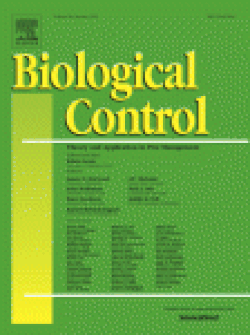 Antifungal effects of compost tea microorganisms on tomato pathogens January 2015 Biological Control Link Here Canadian researchers wanted to know if compost tea had any effect on the disease causing fungi, Botrytis and Alternaria. The fungal pathogens are known pests on tomato farms and cause a significant amount of loss to the high dollar crop. To test tea's effects on tomatoes, the scientists brewed up a compost tea that was derived from sheep manure compost. They used a series of laboratory techniques to isolate individual species of microbes in the tea. Then they grew those individual species on petri dishes that also had Botrytis and Alternaria fungal spores growing on them. The scientists looked for the petri dishes of bacteria that inhibited the growth of the fungal spores most effectively. They found the most anti-fungal strains were Bacillus subtilis and Brevibacterium linens. The scientists then took these two beneficial bacteria and tested how they protected actual tomatoes from fungal infection. To do this, they injected tomatoes with both the beneficial bacteria and the disease causing fungus. They did this two ways: the bacteria before the fungus, and the fungus before the bacteria. The reason for the two scenarios was because they wanted to see if there was a preventative aspect to applying the beneficial microbes prior to the introduction of the fungus. They also wanted to see if the bacteria worked better as singular isolates, or if they were more effective when they worked as a pair. The infected tomatoes were then incubated in a warm and moist environment, allowing the bacteria and fungus to do battle. The control group were tomatoes infected with fungus, but given no protective bacteria. At the end of the incubation time the researchers measured the size of the lesions produced by the pestilent fungus. The tomatoes that were treated with the beneficial bacteria prior to fungal infection were in significantly better shape than the ones that were treated after infection. This supports the idea that an ounce of prevention is worth pounds of cure. The research also found that the tomatoes that had both strains of beneficial bacteria were well better off than the tomatoes that were inoculated with only one strain. This lead the scientists to suggest that there is a synergistic effect between the two microbes that act together to suppress fungal growth. This support's TeaLAB's hypothesis that a bio-diverse compost tea is the most beneficial to the garden. The take away message is that compost tea helps reduce disease. It's a low cost, environmentally friendly way to keep a happy garden. Thanks Canadian scientists!
1 Comment
1/2/2020 10:38:19 pm
Nice blog!!!!! Keep writing visit Meddco Healthcare: https://www.meddco.com/ for affordable healthcare packages
Reply
Your comment will be posted after it is approved.
Leave a Reply. |
Archives
June 2024
Categories
All
|
Contact Us
Why TeaLAB?TeaLAB is committed to helping people and their gardens to become more self- sufficient, healthier, and productive. Grow your sweetest corn, your biggest watermelon, your tallest quinoa, your tastiest tomato, and your happiest you.
TeaLAB was founded to teach people how to garden organically, so that we can become more closely connected with the land. Our goal has been to simplify growing methods so that gardeners have a positive experience in the garden. TeaLAB is where the garden meets the laboratory. From around the world and into your backyard, our products contain ingredients that are sourced both locally and globally. Using methods both ancient and cutting edge, TeaLAB promotes maximum biology. Grow with TeaLAB. |

 RSS Feed
RSS Feed
